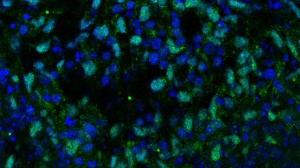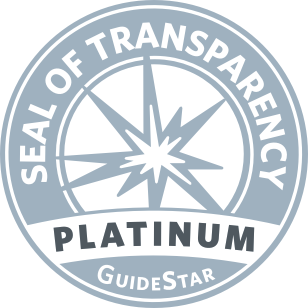jCyte Stem-Cell Therapy Moves into Phase IIb Clinical Trial for RP
Eye On the Cure Research News
Based on lab studies, researchers believe the treatment can preserve and potentially rescue the patient’s existing photoreceptors, thereby saving and possibly restoring vision.

These are retinal progenitors.
The stem-cell therapy company jCyte is launching a Phase IIb clinical trial of its therapy for people with retinitis pigmentosa (RP). The trial is taking place at University of California, Irvine, and Retina-Vitreous Associates Medical Group in Los Angeles.
The 70-participant study is being led by Henry Klassen, MD, PhD. Participant enrollment is scheduled to begin this month. The treatment involves intravitreal injection of retinal progenitor cells (RPCs), which are stem cells that have partially developed into the retinal cells that make vision possible.
Based on lab studies, researchers believe the treatment can preserve and potentially rescue the patient's existing photoreceptors, thereby saving and possibly restoring vision.
Administration of the treatment does not require surgery and can be performed in minutes in an outpatient setting. The RPCs are injected into the vitreous, the gel-like substance in the middle of the eye.
Twenty-eight patients were enrolled in the safety-oriented Phase I/IIa trial for the treatment, which began in June 2015.
Dr. Klassen says safety results from that trial have been encouraging. "The cells have been well tolerated, without serious adverse events attributable to the treatment," he says. "Also, we observed that the injected cells— which formed intravitreal grafts — survived for long periods, even more than one year. We hope to publish detailed results later this year."
The Phase IIb study will be controlled, meaning that participants will either receive the injection of RPCs or a placebo treatment as the control. Study investigators will be evaluating changes in a number of measures of visual function including: visual acuity, visual field, contrast sensitivity, and the ability to navigate a mobility course.
"The new, Phase IIb trial is exciting because it is specifically designed to demonstrate efficacy, which of course is the question on many peoples' minds," says Dr. Klassen.
jCyte recently received an $8.3 million matching grant from the California Institute of Regenerative Medicine (CIRM).
In a statement released in December 2016, CIRM's grant-review working group said, "The proposed treatment approach holds the potential to address a clear and urgent unmet medical need. Further, the investigators leading this study are exceptional and have proposed a well-designed trial to generate useful data that will further inform clinical development of this treatment."
The Foundation Fighting Blindness funded earlier lab studies of emerging stem-cell therapies that helped make jCyte's RPC trial possible.





